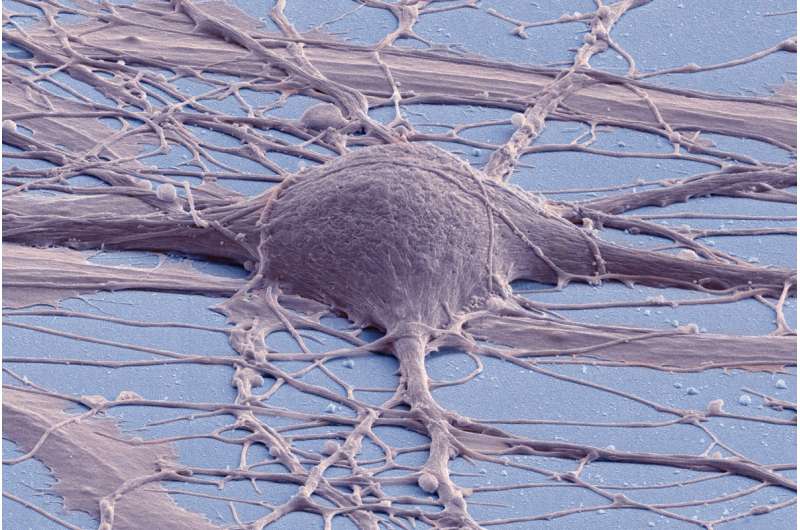In four related papers, researchers describe new and improved tools for stem cell research

Induced pluripotent stem cells (iPSCs), derived from human adult cells and capable of being differentiated to become a variety of cell types, are a powerful tool for studying everything from molecular processes underlying human diseases to elusive genetic variants associated with human phenotypes.
In a new paper published online April 6 in Stem Cell Reports, a large team of researchers led by senior author Kelly Frazer, PhD, professor of pediatrics and director of the Institute for Genomic Medicine at University of California San Diego School of Medicine describe a new collection of 222 systematically derived and characterized iPSC lines generated as part of the National Heart, Lung and Blood Institute's NextGen consortium.
Dubbed iPSCORE for "iPSC Collection for Omic Research," Frazer said the novel collection addresses several significant issues that currently hamper using iPSCs as a model system for human genetic studies investigating the segregation of traits, such as lack of large numbers of molecularly well-phenotyped lines and representation of ethnic diversity as well as participants from families and genetically unrelated individuals.
"The iPSCORE collection contains 75 lines from people of non-European ancestry, including East Asian, South Asian, African American, Mexican American, and Multiracial. It includes multigenerational families and monozygotic twins," said Frazer. "This collection will enable us to study how genetic variation influences traits, both at a molecular and physiological level, in appropriate human cell types, such as heart muscle cells. It will help researchers investigate not only common but also rare, and even family-specific variations."
The Stem Cell Reports paper is, in fact, one of four related studies just published by different teams of scientists, each with Frazer as senior author. The other three studies all utilize the iPSCORE resource to either address important genetic questions or develop new tools for analyzing iPSC lines:
- Writing in the April 6 online issue of Cell Stem Cell, Frazer and colleagues used whole genome sequencing and gene expression profiling of 215 human iPSC lines from different donors to identify genetic variants associated with RNA expression for 5,746 genes. The work highlights the value of iPSCs for genetic association analyses and investigating genetic regulation of gene expression in pluripotent stem cells.
- Also in the same issue of Cell Stem Cell, Frazer and colleagues provided important insights into aberrant methylation patterns present in iPSCs that will enable better use of these cells to study development and disease.
- Finally, in the April 6 issue of Stem Cell Reports, Frazer and colleagues developed a set of simple methods to reduce the cost and increase useful production of iPSC lines. Specifically, they outline less expensive methods for high-throughput quantification of surface markers, gene expression analysis of in vitro differentiation potential and high-resolution karyotyping to detect chromosomal aberrations.
More information: "iPSCORE: A Resource of 222 iPSC Lines Enabling Functional Characterization of Genetic Variation Across a Variety of Cell Types," Stem Cell Reports: DOI: 10.1016/j.stemcr.2017.03.012
"Aberrant iPSC Methylation is Associated with Motif Enrichment and Gene Expression Changes in a Clone-Specific Manner Independent of Genetics," Cell Stem Cell: DOI: 10.1016/j.stem.2017.03.010
"Large-Scale Profiling Reveals the Influence of Genetic Variation on Gene Expression in Human Induced Pluripotent Stem Cells," Cell Stem Cell: DOI: 10.1016/j.stem.2017.03.009
"High-Throughput and Cost-Effective Characterization of Induced Pluripotent Stem Cells," Stem Cell Reports: DOI: 10.1016/j.stemcr.2017.03.011
Journal information: Stem Cell Reports , Cell Stem Cell
Provided by University of California - San Diego


















